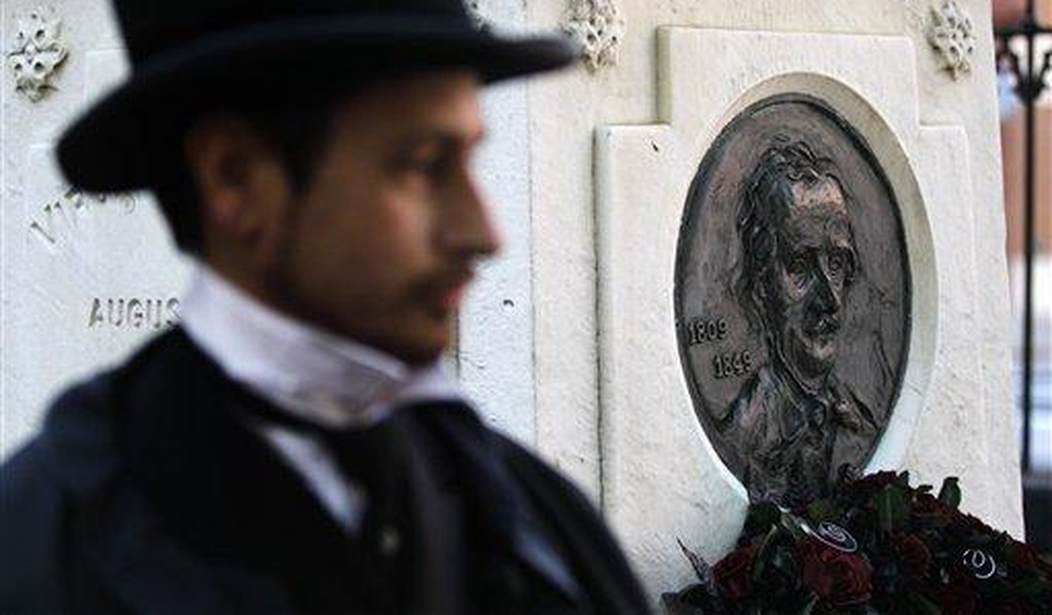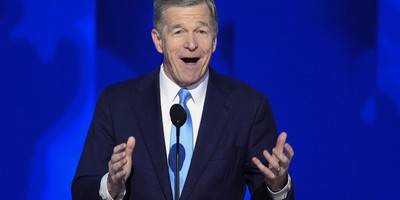Edgar Allan Poe, the American poet who died in Baltimore at just 40 years of age in 1849, will long be remembered for the poem he published in 1845 about a raven that entered his home and haunted him from a perch above the front door.
A few generations later, a member of Poe's clan would similarly haunt Yale.
John Prentiss Poe, who served as Maryland's attorney general in the early 1890s, was the son of Neilson Poe, a Baltimore City judge, who was Edgar Allen Poe's cousin. John Prentiss Poe was also the father of six boys -- all of whom played football for Princeton College.
The Baltimore Sun ran a story on Nov. 27, 1899, that summarized the history up to then of the Poe family and Princeton football. It was headlined: "Those Six Poes -- A Brilliant Line of Football Men That Runs to 1902."
"Arthur Poe, Princeton's young football hero, is the fifth of the famous Poe brothers of Baltimore, who have played on the Princeton varsity," said the Sun. "Every one of them so far has won renown on the gridiron, and there is still another Poe who it is expected will do likewise. Last week when the Tigers were having the final touches put on in practice it was Gresham Poe, on the scrub, who made them play their hardest, and who came very near scoring on the varsity several times by sensational runs. Gresham Poe is in his sophomore year, and will be heard from on the varsity later."
So, why was Arthur Poe Princeton's "football hero" in 1899?
The story starts on Nov. 12, 1898, the day of that year's Princeton-Yale game.
Recommended
Poe, a junior, who was only 5 feet, 7 inches and 146 pounds, played right end for Princeton's defense in that game. With the score tied 0-0 and the first half nearing its end, the Yale offense approached the Princeton goal line. A Yale running back fumbled on the 5-yard line.
Poe himself described what happened then in a letter to the editor he wrote the following week.
"When the ball slipped out of Durston's hands I was not far away, and soon got it, but then I had no idea of making a long run," he wrote. "Almost automatically I picked it up and started for Yale's goal. When I saw a clear field before me I was intoxicated with my own feelings, and I don't know for the life of me what I thought or how I ran. My ankle was lame, but I did not mind that. The first thing I knew Moffatt and Lea and my brothers and other Princeton men were falling all over me as soon as the touchdown was made."
"The scene that followed will be remembered by all who witnessed the game," The New York Times reported the next day.
"On the Princeton stands pandemonium broke loose," said the Times. "Every one seemed to be trying to cheer louder than all the others. Flags were waved, women took off their bouquets of chrysanthemums and waved them in the air. On the side lines the substitutes danced and shouted and yelled, and the coaches were so delighted that they hugged each other and cheered again and again for Poe."
Poe's run was the only score of the game. Princeton beat Yale 6-0.
A year later, Princeton and Yale played again in New Haven.
Toward the end of this 1899 game, Princeton trailed 10-6 and had the ball on Yale's 35-yard line. That year, a field goal was worth five points in college football. But Princeton's regular kicker was out with an injury.
A week later, The New York Times published a story headlined: "Why Poe Kicked that Goal."
"Princeton men have not begun to tire of talking about the goal kicked from the field by Arthur Poe, that brought victory to 'Old Nassau' in the game against Yale a week ago," said the Times. "They may never tire of it."
"Poe, as is well known, was not considered one of the goal kicking men of the eleven," the Times said.
"When Princeton's team was battered almost to pieces, the coaches on the side lines decided that the only way to avert the threatened defeat was to try for a goal from the field as a last resort," the paper reported.
"It was then that Poe came to the rescue," said the Times. "'Give me the ball, and I'll kick the goal, sure,' he said, quietly but firmly. Edwards wasn't so sure of Poe's ability to kick a goal, but he did know that Poe was always cool and collected, and never allowed himself to get rattled under any circumstances. So when the team lined up, with but two minutes left in which to win or lose, Poe dropped back toward the quarter back, and the half backs moved over to his place at the end of the line. Bannard passed the ball to Poe, who, coolly as if he had been used to that sort of thing all his life, balanced the spheroid for an instant, gauged that distance accurately, and then made the kick that brought the victory.
"And this is the true story of how Arthur Poe came to be the football hero of 1899," said the Times.
Poe was named to the College Football Hall of Fame in 1969. "Poe," the Hall of Fame says on its website, "saved his most devilish tricks for rival Yale teams, and few Eli followers forgot the tiny but testy 146-pound Princeton end."
They were surely happy, however, that because he graduated in the spring of 1900 he would play against them nevermore.

























Join the conversation as a VIP Member